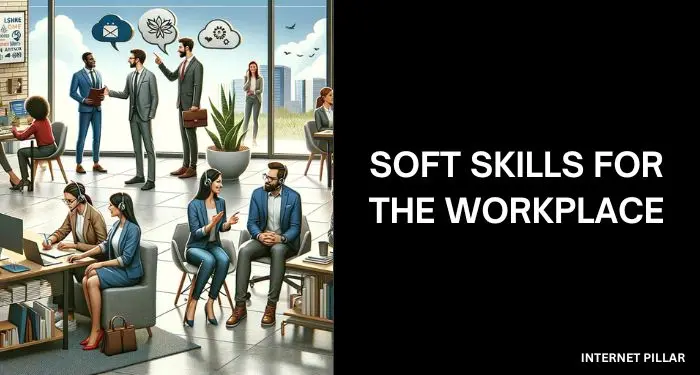In the hustle and bustle of today’s work environment, you have got to bring more to the table than just your smarts and skills in your field.
Soft skills are the ones that help you to connect with your team and get your point across, are becoming the unsung heroes of the workplace.
We are talking about being a team player, knowing how to chat things out, rolling with the punches and figuring stuff out on the fly.
These skills are what make things tick in any organization, big or small.
These abilities, like being a people person, getting your ideas across clearly and working well with folks from all walks of life, are super important.
They might be tricky to pin down and measure, but they are your golden ticket in a bunch of different jobs and places.

Getting better at these skills can make a difference in how you connect with your coworkers, stay on your toes when things change and move up in your career.
This article is not just about why these skills matter, but also about how buffing up your soft skills can really pay off at work.
Let’s get started.
11 Soft Skills for the Workplace
1. Effective Communication
Communication is a key in the workplace for building strong relationships with peers and clients. It is about clearly sharing messages and understanding others’ needs.
Good communicators can resolve issues swiftly and foster teamwork.
Skills like active listening, verbal, nonverbal and written communication, along with presentation abilities, are important.
Even video communication is on the rise, demanding adaptability to different audiences.

2. Teamwork
Working collaboratively towards a common goal defines teamwork.
It enhances creativity, job satisfaction and contributes to a positive workplace.
Skills important for teamwork include conflict resolution, collaboration and accountability, all essential for achieving professional and organizational success.
3. Leadership Qualities
Leaders inspire teams towards achieving goals with a clear vision and a culture of excellence.
Leadership is important across various industries, particularly in roles that involve guiding others like management and teaching.
Key leadership skills include problem-solving, mentoring and strategic thinking.
4. Creativity
Creativity involves innovative thinking and challenging conventional ideas.
It is essential for problem-solving and gives companies a competitive edge through new products and ideas.
Creative roles include writing, designing and styling, requiring skills like brainstorming and experimentation.

5. Time Management
Efficient time management means prioritizing tasks and avoiding distractions.
It is about being seen as reliable and efficient by meeting deadlines and balancing multiple priorities.
This skill is especially important in roles with tight deadlines like writing and legal professions.
Planning, goal-setting and delegation are examples of time management skills.
6. Adaptability
In a fast-changing world, adaptability is essential for staying relevant and handling unexpected challenges.
Flexible employees help organizations quickly recover from setbacks.
This skill is increasingly important due to rapid technological advancements, requiring a willingness to learn and embrace new methods.
Adaptability skills include flexibility, resilience and a growth mindset, vital for thriving in evolving job markets and embracing future opportunities in fields like computing and engineering.
7. Strong Work Ethic
A solid work ethic showcases your dedication to your job, enhancing your reliability and credibility at work.
Demonstrating this involves punctuality, meeting deadlines and being accountable. Maintaining a positive attitude, especially when facing challenges, is a key.
Work ethic skills like professionalism and discipline are vital, particularly for entrepreneurs and teachers.

8. Effective Problem-Solving
Problem-solving is about finding creative solutions to challenges. It is essential for making informed decisions and improving efficiency in the workplace.
Critical thinking, analysis and initiative are part of problem-solving skills that are especially important in fields like law, medicine and engineering.
9. Emotional Intelligence in the Workplace
Emotional intelligence is the ability to understand and manage your own emotions and those of others.
It is key in collaborative environments, enabling effective team work and strong relationships.
Skills like empathy, social skills and motivation are part of emotional intelligence, distinguishing humans from machines in understanding and reacting to emotions.
10. Conflict Management
Conflict management involves resolving disagreements constructively.
It requires good communication, empathy, negotiation and a collaborative approach to find common ground.
Identifying shared goals can foster unity and lead to better outcomes, making skills like mediation and conflict resolution important for maintaining a harmonious work environment.

11. Critical Thinking
Critical thinking involves a strategic approach to problem-solving, weighing options and considering outcomes.
It is about evaluating arguments, considering various perspectives and generating solutions.
Critical thinking is important for roles that require in-depth analysis and decision-making, such as in the legal profession.
So, these were some of the workplace soft skills you should learn to get success.



